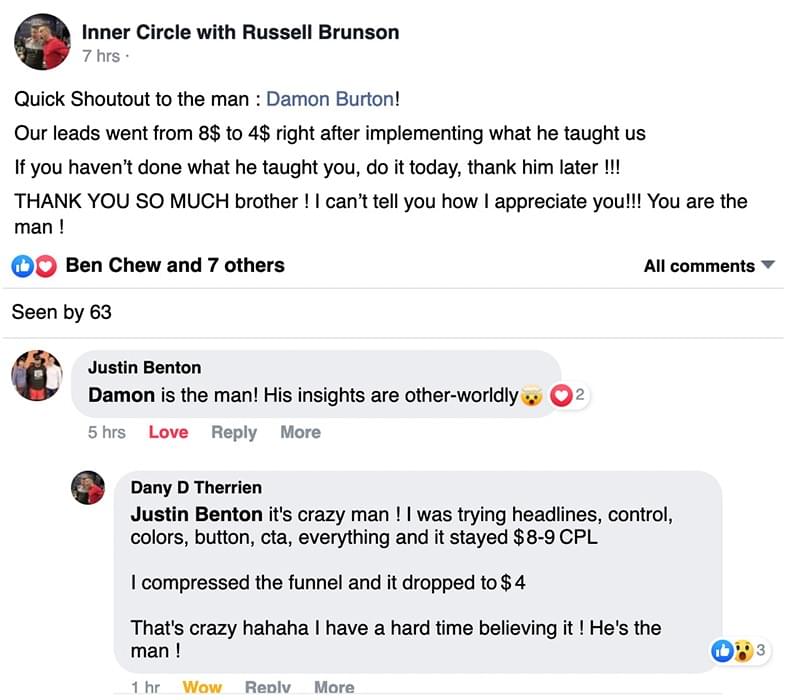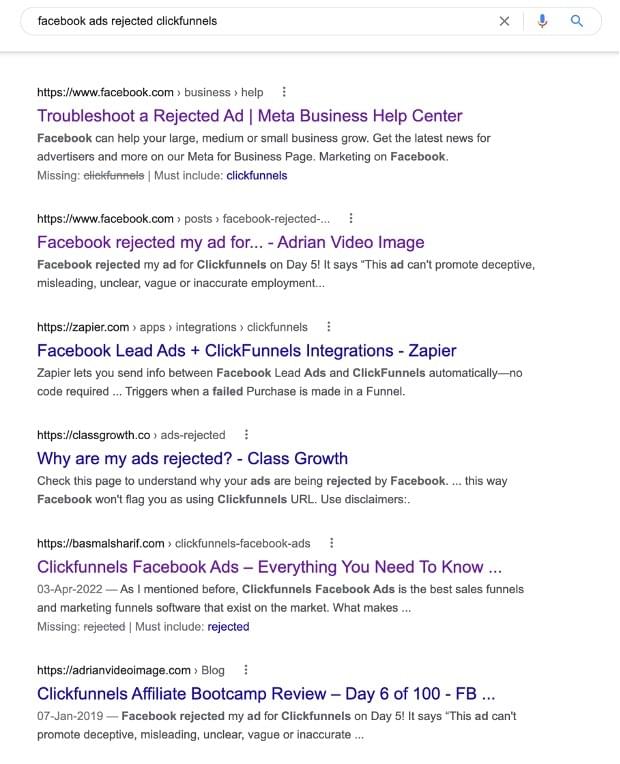
Get Traffic Without Ads
🛑 Stop paying for expensive ads that don't work 🛑
TEST PAGE
Thank you for your interest.
We are not currently launching yet.
There is nothing on the next page.
No need to submit.
We are not currently launching yet.
There is nothing on the next page.
No need to submit.
For SEO consulting, see this page.
Funnels SEO could
change your life
TODAY @ XX:XX PM
00Hours00Minutes00Seconds
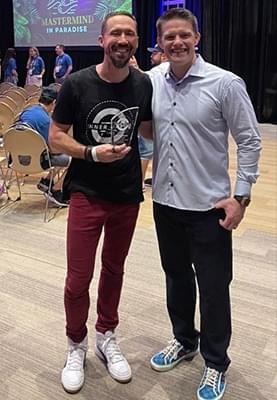
SEO masterclass by Inner Circle Award Winner,
Damon Burton
Damon Burton
Can you optimize ClickFunnels for search engines?
Yes. You are reading a ClickFunnels landing page now that has been optimized to rank at the top of search engines.
Google "SEO for ClickFunnels" or "ClickFunnels search engine optimization" and you will see this website on page one.
False Belief #1
I need paid ads to survive
False Belief #2
SEO is expensive
False Belief #3
Organic traffic is hard
False Belief #4
Ads are easier
ClickFunnels - I’m a big fan of it.
So much so that I'm a member of Russell Brunson's Inner Circle.
Brunson, co-founder of ClickFunnels, has a clear vision for his product: to help users make money, easily. ClickFunnels has these amazing features to help you create a powerful marketing sales funnel—something that would be mind-boggling to build on your own.
But while you’ll hear much about the successes people have had using ClickFunnels, there’s little talk of the false beliefs surrounding ClickFunnels optimization. These beliefs prevent users from making the most of their investment in the software. As a member of Russell’s Inner Circle mastermind and Founder of SEO National, I feel it’s my responsibility to break down those beliefs so that you don’t miss out on the awesome benefits that ClickFunnels brings to businesses.
But while you’ll hear much about the successes people have had using ClickFunnels, there’s little talk of the false beliefs surrounding ClickFunnels optimization. These beliefs prevent users from making the most of their investment in the software. As a member of Russell’s Inner Circle mastermind and Founder of SEO National, I feel it’s my responsibility to break down those beliefs so that you don’t miss out on the awesome benefits that ClickFunnels brings to businesses.
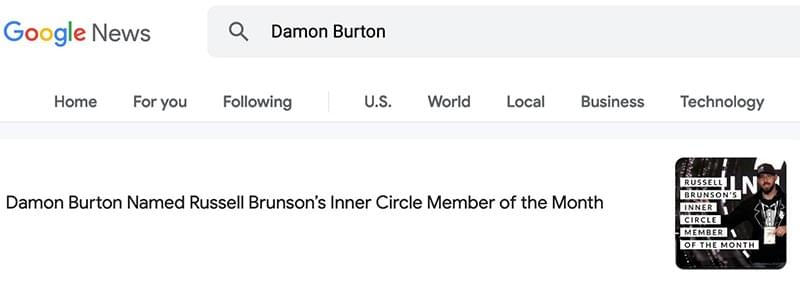
False belief #1
I need to do paid ads to survive
Many ClickFunnels users consider paid ads to be the holy grail of lead generation. But here’s what’s interesting: less than 2% of paid ads get clicked on. In contrast, organic listings capture 94% of all clicks on Google Search. So there’s this huge gap in traffic that’s up for grabs.
Here’s the thing: when it comes to organic leads and conversions, non-paid search traffic leaves paid traffic in the dust. The graphic below gives you an idea of the power of organic search engine traffic for funnels.
Social = 2%
Paid Ads = 6%
Organic (FREE) Search Engine Traffic = 64% of all clicks for most websites
Paid Ads = 6%
Organic (FREE) Search Engine Traffic = 64% of all clicks for most websites
All traffic is not created equally
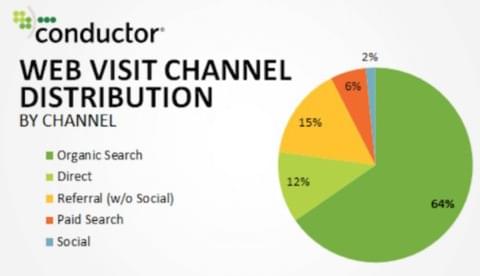
I’m not saying paid ads suck or that you should stop running Facebook ads and Google Ads for your pages. What I want to illustrate is the massive opportunity that’s available. If you’re already making millions through paid ads, just imagine exponentially increasing that through ClickFunnels SEO.
Or, you might completely switch to organic search to avoid the common pain points of paid advertising. Imagine:
❌ ad fatigue
❌ ad compliance
❌ ever-changing ad costs
❌ starting all over every few months
❌ logging into your ad account non-stop
❌ ad compliance
❌ ever-changing ad costs
❌ starting all over every few months
❌ logging into your ad account non-stop
You don’t have to deal with any of this when you’re working on optimizing your webpages for Google and other search engines.
Best of all, organic SEO provides more qualified, high-converting leads because it’s based on satisfying buyer intent rather than stereotyping a persona. So with organic search, you’re likely to get higher conversions since you’re reaching people based on their needs and pain points.
Best of all, organic SEO provides more qualified, high-converting leads because it’s based on satisfying buyer intent rather than stereotyping a persona. So with organic search, you’re likely to get higher conversions since you’re reaching people based on their needs and pain points.
False belief #2
"SEO is expensive."
Have you paid for an ad lately? 🤣
SEO isn't free, but the amount you spend effectively decreases over time as your traffic from your optimized funnels increases, attracting quality leads that convert. In comparison, PPC costs keep rising no matter how hard you work to optimize your ads for web traffic and conversions.
Recently cited data from Hunch Ads shows that Google and YouTube’s CPM is up by 108%, while Facebook ad cost has increased by 89% year-over-year. This means everyone has to stretch their marketing budget as running ads has gotten more expensive in general.
Optimizing your funnels is your answer.
With the right strategy, not only could you drive NEW TRAFFIC to your funnel,
but you could also cut your cost per lead in half.
Dany is in Russell Brunson's Inner Circle with me. He let me optimize his funnel, and guess what happened next?
He lowered his cost per lead from $9 to $4.
And the optimization changes took only 20 minutes to make.
False belief #3
Organic traffic is hard
Just like funnels aren’t hard once you have the right strategy, SEO isn’t hard either.
There is a misunderstanding that search engine optimization is hard, or that Google's algorithms keep changing.
So if you think that:
❌ SEO is hard
❌ Content takes forever
❌ Can’t measure progress with SEO
... It’s a false belief that can be addressed by learning the basics with the right strategy.
PPC advertising changes a lot more than SEO.
Whether you’re running Facebook ads or Google ads, they’ll always be ever-changing and exhausting. SEO, meanwhile, is consistent and compounding.
To understand how much PPC has changed over the years, take a look at these non-stop (and annoying) changes over the years:
-
In 2021, Google merged Smart Display and Display campaigns into one campaign type. Plus, it shared that Display campaigns have been automatically put into optimized targeting, leaving many advertisers confused about who they’re going to reach.
-
Also in 2021, Google ended support for new broad match modifier (BMM) keywords with the “keyword” notation. This forced Google Ads users to consolidate duplicate keywords and change their BMM phrases to different match types.
-
In 2020, Google replaced the average position with Absolute top impression rate and top impression rate.
-
In 2019, Google retired the accelerated ad delivery method, citing that it was not cost-effective for smaller businesses. (What about businesses who had success with it?)
-
In 2018, for the first time in 18 years, Google pushed users onto a new UI. Google AdWords became Google Ads, with the new platform featuring a lot more tools and functions. Although Google let older users of its ads platform switch to the previous interface for some time, brand new accounts have no switch to the old AdWords option available.
-
In 2017, Google loosened the rules around Exact Match terms. Users were allowed to include word order, plurals, and misspells.
- Also in 2017, Google modified EU shopping ads due to the new rules made by the European Commission.
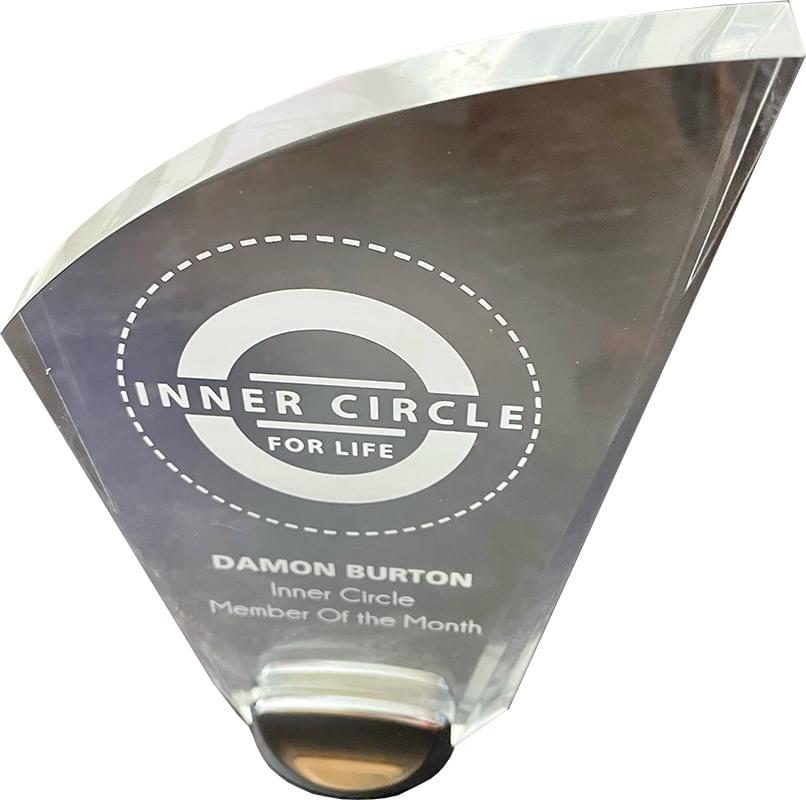
-
In 2016, Google quietly removed right-hand search ads from its placement options (except for PLAs)
-
In 2015, Google set the default quality score applied to keywords with low impressions and brand-new keywords from 7 to 6.
-
In 2013, Google product listing ads received an expansion arrow, which showed up to 16 products once clicked.
-
In 2012, Google received a ton of complaints regarding the number of ads showing above the fold.
-
In 2011, Google said it would begin placing ads at the bottom of SERPs instead of the sidebar.
-
In 2009, Google launched 4 sitelinks and showed them only for ads that met certain ambiguous criteria.
-
In 2002, the Google AdWords interface evolved from its initial UI and the pay-per-click (PPC auction model) was introduced.
-
Before 2002, advertisers used to pay for impressions rather than clicks. A higher bid meant a higher position for the ad on the search engine results page.
The next time you hear someone grumble that SEO changes fast and often, take their verdict with a pinch of salt (or better yet, point them to the list above—they’ll realize how easier SEO is).
False belief #4
Ads are easier
Well, are they?
Because from what I’ve read and eeevverrrrryonnnne I talk to, ads are getting harder and harder every day. Plenty of users report that Facebook rejected their ads for one or another reason, making their life difficult.
Check out this snapshot from Google SERP:
Tough pill to swallow?
Disclaimers are another thing ad advocates need to be mindful of. If you’re advertising a webinar, you need to disclose that you’ll give an offer at the end. A disclaimer should be there on your landing page and in the ad. Additionally, you may need to give disclaimers about results, testimonials, and income claims.
Speaking of income claims, they’re now frowned upon by both Google and Facebook. This means saying anything like you made a million dollars in X time is likely to get your ad rejected, even if it’s true. Sure, you can find other ways to entice the audience, but defining your success with numbers has an impact that’s hard to replicate with other strategies.
Speaking of income claims, they’re now frowned upon by both Google and Facebook. This means saying anything like you made a million dollars in X time is likely to get your ad rejected, even if it’s true. Sure, you can find other ways to entice the audience, but defining your success with numbers has an impact that’s hard to replicate with other strategies.
False belief #5
PPC tracking and attribution is easier than SEO
So if attribution tracking is important to you, you now know which ClickFunnels growth strategy will make your life easier... Funnels SEO.
Supercharge your ClickFunnels with SEO
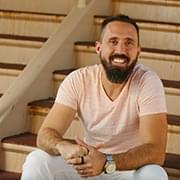
About Your Presenter
Damon Burton
Over a decade ago, this husband and father of three beat a billion dollar company by outranking their website on Google. Since then, he knew he was onto something and went on to build an international search engine marketing company that’s worked with NBA teams, and Inc 5000 & Shark Tank featured businesses.
Having started his business right before the 2008 recession, Damon is familiar navigating and growing a business through times like today, including tripling revenue during the recent pandemic.
Having started his business right before the 2008 recession, Damon is familiar navigating and growing a business through times like today, including tripling revenue during the recent pandemic.
Copyright Funnels SEO™
Funnels SEO is not affiliated or endorsed by ClickFunnels, Facebook, Google, or any search engine.

